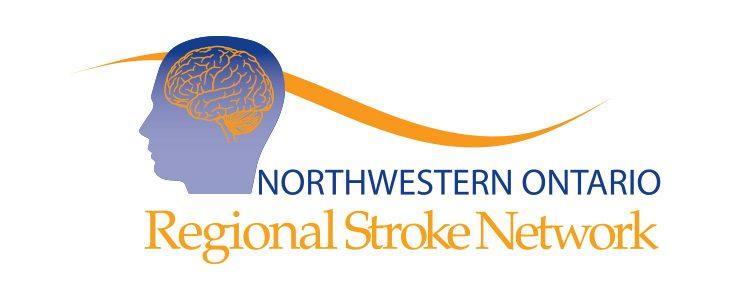Northwestern Ontario Regional Stroke Network Demonstrates Improvements in Care
by Maryanne Matthews

The Northwestern Ontario Regional Stroke Network, part of Thunder Bay Regional Health Sciences Centre, has demonstrated significant improvements in stroke care according to the latest Stroke Report Card released by the Ontario Stroke Network (OSN) and the Institute for Clinical Evaluative Sciences (ICES) for the North West Local Health Integration Network (NW LHIN).
The LHIN Stroke Report Card reveals that our Regional Stroke Network has progressed in 11 out of 17 indicators, with particular success in the areas of acute stroke management and stroke rehabilitation. The improvements are due in part to the establishment of the Hospital’s Regional Stroke Unit in April 2015. The Stroke Unit is a specialized, geographically defined hospital unit that is dedicated to the management of stroke patients and staffed by an interprofessional stroke team with a specialized interest in stroke care.
Door to needle time considers how long it takes for patients to receive acute thrombolytic therapy (tPA). Despite geographical challenges, our Hospital reduced times to 58 minutes in 2015/16. Since then, the Hospital has implemented Code Stroke, which rapidly activates a clinical team to facilitate timely and improved access to tPA. As a result, door to needle times for 2016/17 have decreased to 44 minutes.
Stroke patients in Northwestern Ontario are also accessing inpatient rehabilitation following acute care two days faster. This success is attributed to working in partnership with rehabilitation agencies such as St. Joseph's Care Group, which assists our patients on their recovery journeys – improving patient flow and the overall patient experience.
"We welcome the release of this data and the insights it gives us as part of our commitment to the continuous improvement of stroke prevention, care, recovery and re-integration," said Meaghan Sharp, Director of the Cardiovascular and Stroke Program. "We will continue to address the unique challenges of our region and build upon our successes in order to achieve fewer strokes and better outcomes for stroke patients and their families in Northwestern Ontario."
Geographic isolation is a particular challenge for Northwestern Ontario’s Regional Stroke Network. To improve access to stroke care across the region, including remote, northern communities, we're utilizing tele-health services. Telestroke, an emergency telemedicine application, provides emergency physicians with immediate access to an Ontario neurologist with expertise in stroke care who can support both the assessment and treatment of patients experiencing acute ischemic stroke symptoms. Telestroke sites are located in Dryden, Fort Frances, Kenora and Sioux Lookout.
Additional challenges include the poor health status of our region as compared to the rest of Ontario. This results in higher than provincial average admission rates for patients with stroke. We also have the lowest rate of patients who arrive at the hospital by ambulance. Numerous public awareness and education engagement events continue to improve the situation.
The Stroke Network encourages patients and their families learn the signs of stroke (Face, Arms, Speech and Time) and act FAST. If the signs of stroke are suspected, call 9-1-1 right away; the quicker you act, the greater likelihood of a good recovery, with less chance of another stroke. Contacting 911 for an ambulance can speed up the treatment process, improving pre-hospital stroke care, door to needle time, and patient outcomes.
To learn more about stroke care in Northwestern Ontario, please visit www.tbrhsc.net/nwostroke/.